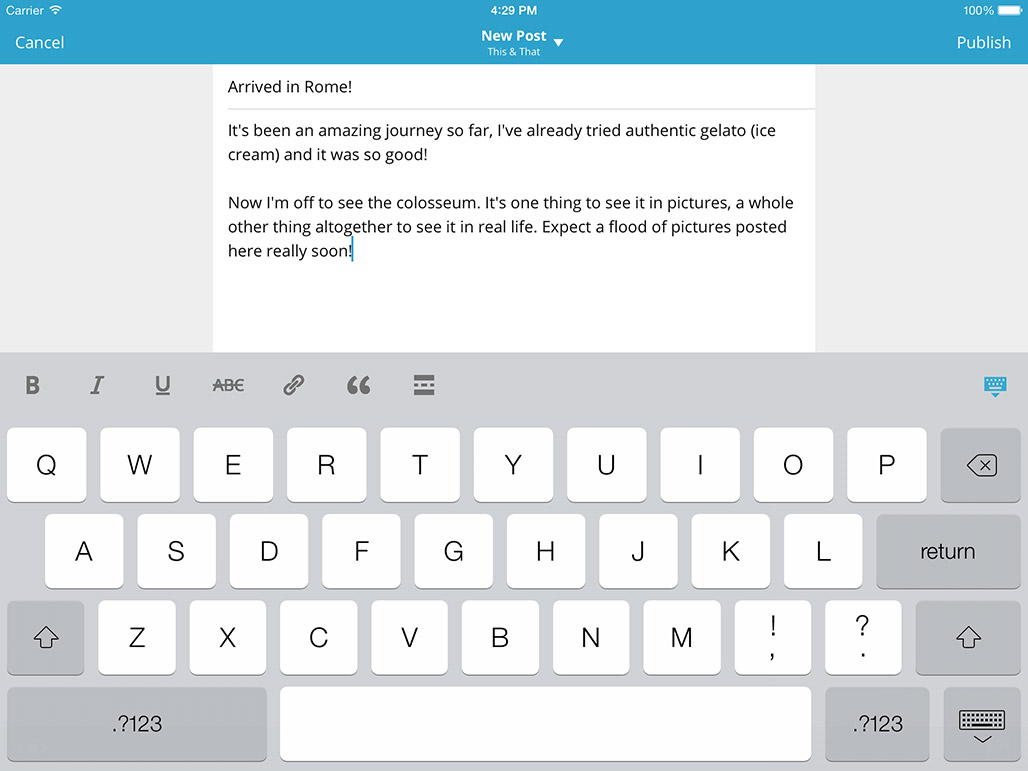Typically when reading interviews people have done with Matt Mullenweg, I don’t learn anything new. That’s the not the case with the extended interview he did with J.J. Colao of Forbes.com. In the interview, Mullenweg goes into detail about his role of CEO at Automattic and emphasized how important mobile is within the company. Here are a few things I took away from the interview.

When people ask how does Automattic make money, I tell them through advertising, paid upgrades, and the VIP partner program. Mullenweg specified that WordAds and the VIP program are each 10% of the total revenue Automattic generates. Meanwhile, subscriptions make up 80% of the revenue. This makes sense but I was surprised subscriptions were that high of a percentage. I thought VIP generated the most revenue for the company based on what they charge and the types of clients they have. Then again, there are more regular users than there are VIP clients.
One thing that hasn’t changed with the move to CEO is that Mullenweg still spends about a third of his time conducting interviews with new employees. If you’re interested in working for Automattic, now is as good a time as ever to apply since the company is aggressively growing as fast as they find the best people.
Transforming Automattic Into a Mobile Company
Over the past two years, the one constant I’ve noticed in almost every interview featuring Mullenweg is his focus on mobile. This interview is no different. While Automattic has been aggressive in mobile acquisitions and new hires, the company will be training existing engineers to be mobile first. The entire company will be a mobile team instead of consisting of 10 individuals.
So in addition to our aggressive hiring on the mobile side and acquisitions, we’re going to start converting our existing engineers to be mobile first. I would hate to have to do this at a 20,000-person company because it’s hard enough as 200-person company.
The mobile world is very closed and proprietary just by definition. Android is open source-ish but not really. iOS is locked down. I want to be more of a mobile company but as we do that I don’t want to lose the things that make us the engine of the independent Web.
Is It Time For Two WordPress Mobile Apps?
As Automattic continues to increase its focus on mobile, I wonder what the future holds for the current mobile app. I use it primarily as a site management tool and not to consume content. Since Automattic loves data, I wonder if they have internal stats that show whether the WordPress mobile app is used more for managing sites or consuming content.

If the data shows that most people use it as a site management tool, I’d like them to consider removing Reader and the blogs I follow feature set from the app and moved into a separate WordPress.com focused app. I never use Reader, I’m not following any blogs, and I don’t have any friends on WordPress.com making almost half the app useless to me.
I understand that WordPress.com and the open source WordPress project have similar feature sets, but I don’t think one app can satisfy both audiences without one or the other getting stuck with unused portions of the application. An alternative would be to create a WordPress Lite application that only gives me the features I need to manage a site. Unfortunately, every time there’s a decent alternative to the WordPress mobile app, Automattic acquires them.
Overall, it’s a great interview but I wish the full transcript of 13,500 words was available versus 2,800. It’s also reassuring to read Mullenweg’s response when asked whether he will be with Automattic for life: “Yes. I’m kind of a one trick pony.”
What do you think of splitting the app in two? Could it work or would it be too confusing? Should I give it the WordPress treatment and just ignore those areas of the app I don’t use?
I think that a lot can be learned from what Facebook has done in the mobile space and the conclusions they have come to: multiple apps is the way to go.
Personally I don’t use the WordPress Reader functionality at all. With the shutdown of Google Reader I switched over to Feedly and never looked back. They have a great web app and great mobile apps. I supplement that with Pocket (getpocket.com) for saving things for future reference.
I definitely think WordPress could compete with Feedly with it’s Reader but it would take rethinking how it currently works and creating apps specifically for that purpose. Who knows, maybe this is something in the works at Automattic. I’d consider switching from Feedly if it was. But it would have to be as easy and nice to use for both WordPress and non-WordPress powered sites with it’s own standalone mobile app optimized for mobile phones, tablets, etc.
When you look at the evolution of WordPress and how it’s gone from being used primarily as a blogging tool to being used as a CMS for all kinds of web sites and applications, multiple mobile apps makes perfect sense. Especially when you factor in the wide variety of plugins that people use with their WordPress site. An official WordPress app is going to be able to encompass all of that which is where function specific mobile apps will come into play.
ManageWP’s mobile app is a perfect example of this.
Personally I don’t like doing too much writing on my iPad or iPhone so I wouldn’t use the app to do anything more than quick updates or site maintenance. Anything more than that and i’ll be using my laptop. I get that mobile is extremely important, but I don’t think it’s the end all-be all. It’s certainly an important piece of the puzzle that needs to be accounted for.
I’m looking forward to seeing what Automattic introduces over the next year. It’s been interesting to watch as they’ve had to differentiate WordPress.com itself by introducing new admin tools, etc. specifically for it in order to cater to the market they serve vs. the self-hosted WordPress space.
As much as WordPress has evolved, I think we’ve only scratched the surface of where it can go. Exciting times.